The Benefits of Occupational Therapy for Enhancing Play and Leisure Skills


The Power of Play in Development and Well-Being
Play is not just a pastime; it is a fundamental human activity essential to childhood development and lifelong well-being. Occupational therapy (OT) leverages play and leisure as vital tools to foster growth, learning, and independence among children and individuals with developmental needs. This article explores the comprehensive role of OT in enhancing play and leisure skills, supported by scientific research and evidence-based practices.
The Central Role of Occupational Therapy in Enhancing Play and Leisure Skills

What is the role of occupational therapy in enhancing play and leisure skills in children and individuals with developmental needs?
Occupational therapy is fundamental in supporting children and individuals with developmental challenges to develop, improve, and maintain their play and leisure skills. Therapists utilize a play-based approach, recognizing play as a natural, enjoyable, and essential occupation for all ages. They assess each person’s unique preferences, strengths, and barriers to tailor interventions that promote active engagement.
Through various techniques such as modeling, imitation, sensory activities, and interest-based approaches, OT helps develop critical motor, social, cognitive, and emotional skills. For example, play activities can target fine and gross motor development, social interaction through turn-taking and communication, and emotional regulation. The goal is to foster independence, self-determination, and confidence.
Because play is a lifelong activity, occupational therapy emphasizes its importance not just in childhood but across the lifespan. It supports brain development, mental health, and physical well-being, making it a vital tool for holistic growth.
How do tailored interventions based on individual preferences and barriers improve play and leisure skills?
Effective OT interventions are highly personalized. Therapists consider what activities motivate the individual and what environmental supports or barriers exist. For instance, interest-based toys, visual aids, and sensory-rich materials like bubbles or textured objects are incorporated to make play engaging.
In cases where children have sensory sensitivities or communication difficulties, strategies such as visual schedules, video modeling, or simplified play routines are used. For children with ASD, structured play sessions and social stories help build social skills and emotional understanding.
By tailoring activities to individual needs, therapists can address specific challenges, encourage participation, and help clients discover new interests. This personalized approach promotes meaningful engagement, enhances skill development, and supports broader goals like social inclusion and overall well-being.
How does play function as a lifelong occupation and influence overall well-being?
Play is not only crucial during childhood but continues to be a significant part of adult life. It fosters relaxation, social interaction, creative expression, and mental health maintenance.
Studies show that engaging in enjoyable leisure activities can reduce stress, improve mood, and strengthen social bonds. Play contributes to cognitive resilience, problem-solving, and emotional regulation at all ages.
Occupational therapists advocate for accessible and meaningful leisure opportunities, emphasizing that play and recreation should be inclusive and adapted to individual needs. This lifelong engagement supports physical health, enhances quality of life, and promotes a balanced, healthy lifestyle.
| Aspect | Role in Play & Well-being | Examples & Impact |
|---|---|---|
| Motor skills | Improve coordination and strength | Obstacle courses, sports |
| Social skills | Foster communication and cooperation | Group games, role-playing |
| Emotional health | Enhance self-awareness and resilience | Creative arts, relaxation activities |
| Cognitive abilities | Support problem-solving and decision-making | Puzzles, strategic games |
| Overall well-being | Promote independence and joy | Recreational hobbies, community involvement |
Occupational therapy’s emphasis on play underscores its lifelong importance—helping individuals lead fulfilling and balanced lives.
Evidence-Based Benefits of OT in Social Play and Daily Engagement
Occupational therapy (OT) plays a vital role in enhancing children’s ability to participate in social play and everyday activities. Research consistently shows that tailored OT interventions lead to measurable improvements in social interaction, playfulness, and functional independence.
One of the primary benefits of OT is the development of sensory-motor skills. These include better balance, coordination, and fine motor control, which are essential for engaging in a variety of play activities. When children improve in these areas, they can participate more confidently and for longer durations in both structured and free play.
In addition, OT focuses on boosting communication and social skills. Children learn to express their needs, interpret social cues, and interact effectively with peers and adults. These skills are crucial for building friendships and participating meaningfully in group settings.
Various strategies have contributed to these positive outcomes. Social skills groups provide a safe environment for practicing interaction, while caregiver-guided play encourages skill transfer at home. Interest-based toys and activities stimulate engagement, making play both enjoyable and therapeutically beneficial. Incorporation of visual aids and video modeling techniques further supports learning and generalization of skills.
Overall, evidence shows that OT interventions tailored to each child's unique needs foster increased independence and confidence. Children not only improve in play and social participation but also experience broader developmental gains that support their well-being, learning, and quality of life.
Impact on Cognitive, Social, and Overall Development
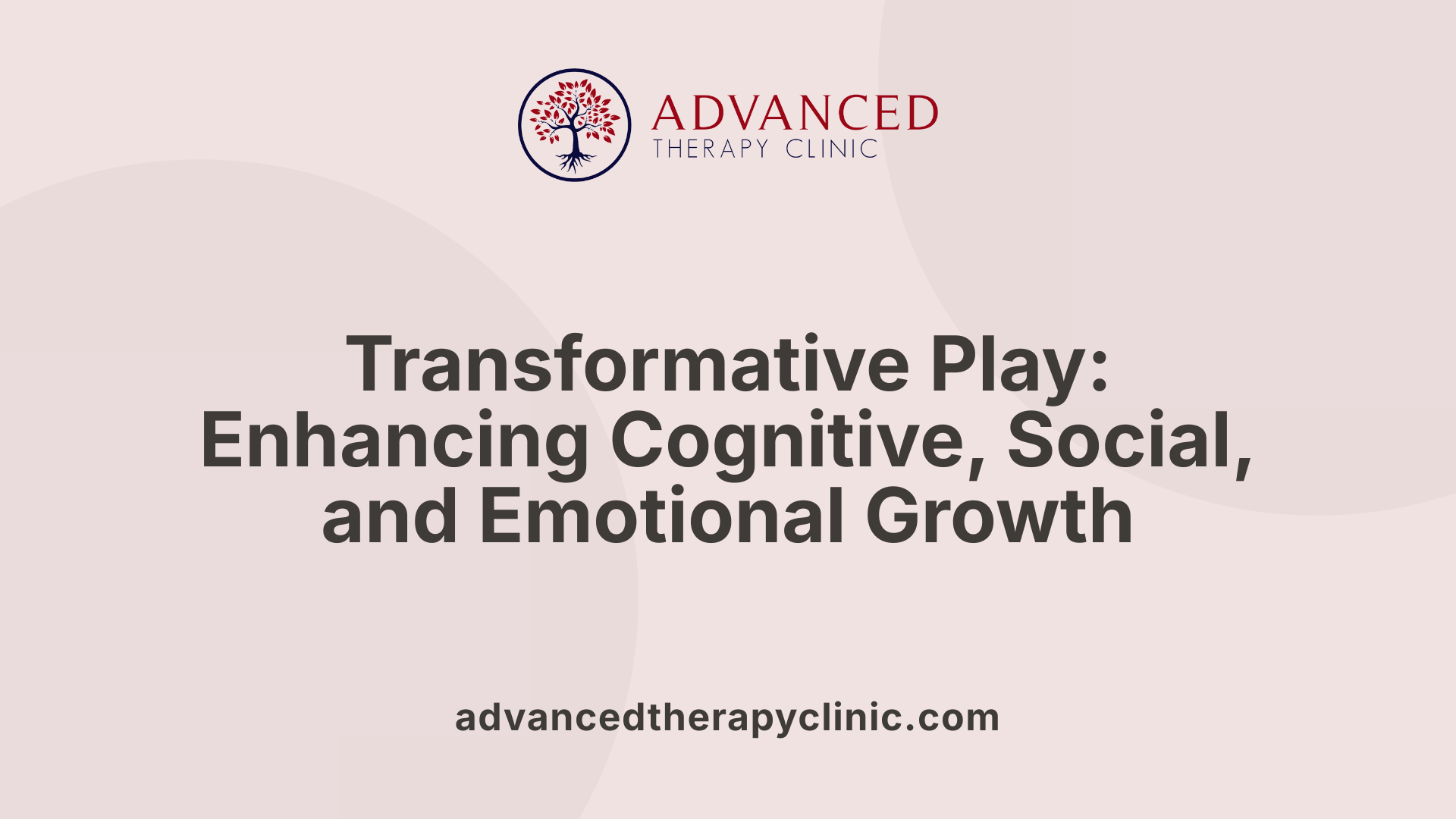
How does play-based occupational therapy intervention impact cognitive function, social skills, and overall development?
Play-based occupational therapy (OT) is highly effective in promoting a child's growth across several developmental domains. Through engaging, meaningful play activities, children develop critical problem-solving abilities, boost their creativity, and improve emotional regulation.
One core aspect of these interventions is the enhancement of social skills. Children learn to take turns, cooperate, and build connections with others by participating in structured or unstructured play. These activities often incorporate elements like framing, suspension of reality, and unconventional approaches, which stimulate social understanding and relatedness.
Beyond social interactions, play therapies contribute significantly to motor skill development and executive functioning. Activities such as stacking blocks or navigating obstacle courses promote fine and gross motor skills. Simultaneously, children practice self-control, resilience, and goal-directed behavior, which are essential for daily functioning.
On a neurological level, play influences brain maturation by activating neural circuits involved in motivation, motor patterns, and cognition. These circuits underpin social motivation, learning processes, and sensorimotor integration, facilitating the development of a well-rounded neural network.
Therapists customize play activities to meet individual sensory, social, and motor needs. This personalized approach not only makes learning enjoyable but also optimizes developmental outcomes.
Overall, play-based OT acts as a comprehensive tool that nurtures a child's physical, cognitive, social, and emotional growth. It encourages lifelong learning and well-being by fostering an environment where children can flourish through the power of play.
Why Play Is Fundamental to Growth, Learning, and Well-Being
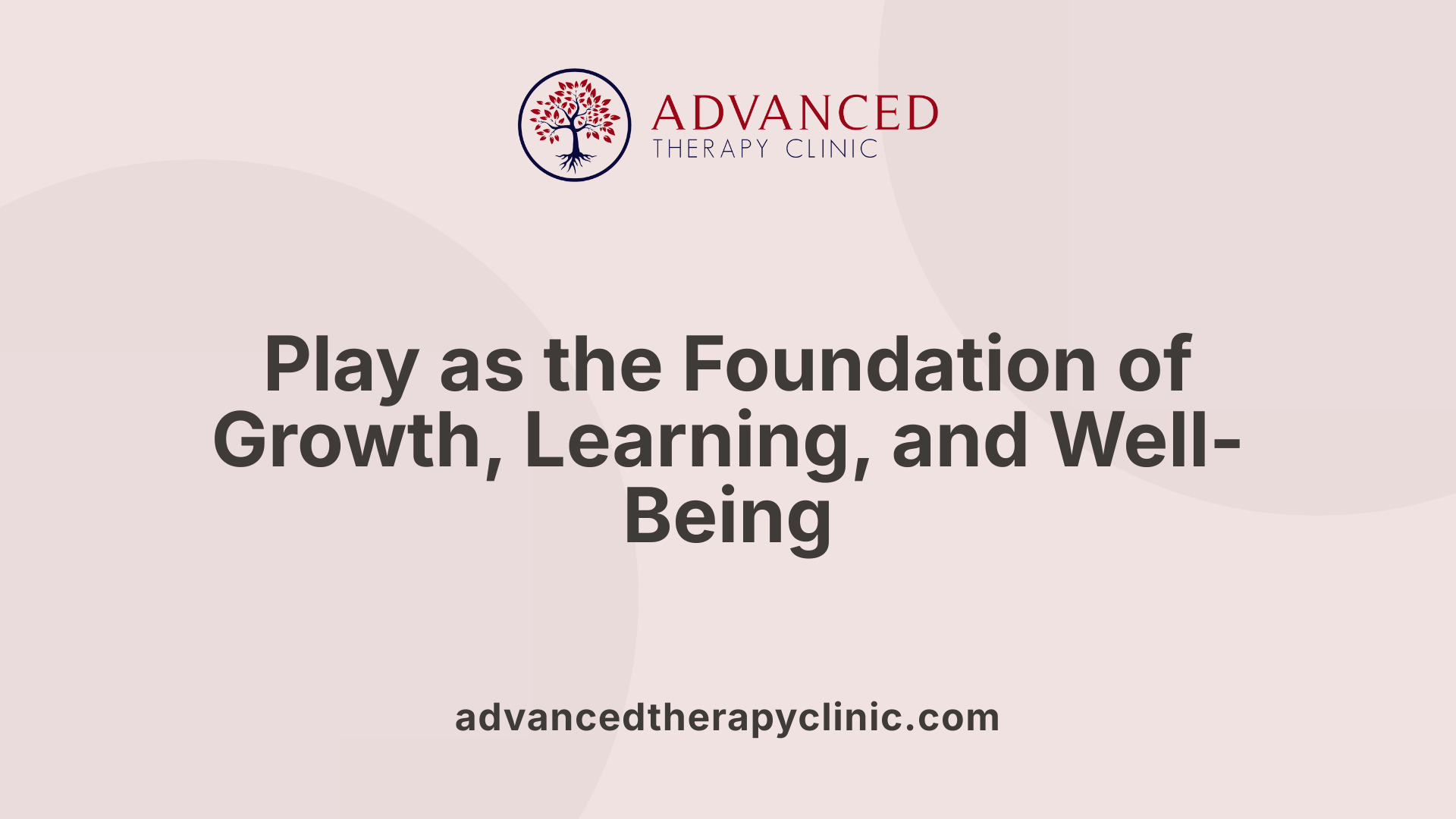
Why is play considered a significant component in occupational therapy for growth, learning, and well-being?
Play is fundamental in occupational therapy because it is the primary activity through which children and even adults develop essential skills.
During play, children learn to coordinate their movements, process sensory information, and interact socially. Structured and spontaneous play help refine fine motor skills, such as grasping and stacking, as well as gross motor skills, like running or jumping.
Beyond physical development, play promotes emotional and social growth. It helps children build confidence, express themselves, and learn social rules and cooperation with peers.
Occupational therapists view play as a lifelong occupation that drives motivation, supports independence, and enhances overall quality of life. Both children and adults benefit from engaging in meaningful play activities tailored to their individual needs.
Effective therapy integrates assessment and goal setting with play-based interventions, ensuring therapy is engaging and relevant. This approach fosters growth across multiple domains, making play an invaluable tool for supporting development, learning, and happiness.
Techniques and Methods Used in Occupational Therapy for Play and Leisure Development
Occupational therapy employs a diverse range of techniques to support and enhance play and leisure activities, which are vital for a child's development and overall well-being.
One fundamental approach involves sensory integration, where therapists create controlled environments that allow children to explore various textures, sounds, and movements at their own pace. This process helps improve sensory responsiveness and integration, essential for meaningful play.
Activity analysis is another critical method used to understand and adapt play tasks suited to each child's abilities. By breaking down play activities into manageable steps, therapists can develop tailored interventions that promote motor skills, cognitive skills, and social interaction.
Adaptive strategies are also employed to modify environments and tools, making play activities accessible for children with diverse needs. These can include the use of visual aids, adaptive equipment, or environmental adjustments like installing grab bars or specialized toys.
Assessment tools such as the Test of Playfulness (ToP) and the Knox Preschool Play Scale are essential for evaluating a child’s play behaviors and capabilities. The ToP measures a child's intrinsic motivation, framing, suspension of reality, and unconventionally, providing insight into their playfulness levels. Meanwhile, the Knox Scale observes play in natural settings to assess developmental progression and play quality.
Creating supportive environments through environmental modifications and modeling techniques is crucial. Therapists often demonstrate play behaviors or pretend scenarios to encourage imitation and social engagement. Role-playing and social stories are also used to teach turn-taking, sharing, and communication.
Occupational therapists balance the use of both unstructured and structured play—each serving different developmental purposes. Unstructured play fosters creativity, independence, and emotional expression, while structured play provides targeted skill development in areas like motor coordination and social rules.
Research continues to emphasize the importance of developing reliable measures of play and playfulness and integrating play-based strategies into therapy. These techniques promote lifelong benefits, including cognitive growth, social skills, emotional regulation, and independence, aligning with the broader goal of supporting children’s full participation in daily life and leisure activities.
Supporting Children with Autism and Developmental Disorders in Play and Social Skills
How can occupational therapy benefit children with autism and other developmental disorders in advancing their play and social interaction skills?
Occupational therapy (OT) plays a vital role in helping children with autism spectrum disorder (ASD) and other developmental challenges improve their play and social skills. Using individualized, play-based approaches, therapists design activities that encourage children to practice social interactions, communication, and emotional regulation.
Structured play sessions and targeted interventions help children develop core social skills such as turn-taking, sharing, and following rules. Techniques like modeling, imitation, and role-playing are often employed to create engaging learning experiences. Sensory integration strategies are also essential, allowing children to process sensory inputs like textures, sounds, and movements more effectively. This improves their ability to remain focused, self-regulate, and participate socially.
Additionally, OT focuses on enhancing motor skills and self-care routines, which support independence and confidence. For example, activities like stacking blocks improve fine motor skills, while obstacle courses build gross motor coordination—all crucial for successful social play.
Early and consistent therapy in natural settings—such as home or community environments—fosters meaningful engagement in daily activities and social interactions. This promotes generalization of skills beyond therapy sessions, leading to improved real-life social participation.
Overall, occupational therapy strives to enhance the quality of life for children with developmental disorders by fostering independence, improving communication, and facilitating positive social interactions. Tailored interventions highlight each child's unique strengths, offering a foundation for lifelong social and emotional well-being.
| Intervention Type | Focus Area | Methods and Materials |
|---|---|---|
| Play-based therapy | Social and emotional skills | Imitation, role-playing, social stories |
| Sensory integration | Behavior and participation | Textures, sensory activities |
| Motor skills training | Independence in daily activities | Stacking toys, obstacle courses |
| Natural environment focus | Generalization of skills | Home-based activities, caregiver coaching |
Enhancing Quality of Life Through Play and Leisure Participation

How can occupational therapy interventions improve the quality of life for children and families through enhanced play and leisure participation?
Occupational therapy plays a vital role in enriching the lives of children and their families by fostering active involvement in play and leisure activities. These activities are central to childhood development, supporting cognitive, social, emotional, and physical growth.
When children participate in meaningful play, they develop vital skills such as problem-solving, emotional regulation, social interaction, and motor coordination. For families, engaging in leisure activities together not only promotes bonding but also enhances overall well-being and family dynamics.
Occupational therapists use specialized, family-centered assessment tools like the Pizzi Health and Wellness Assessment to understand individual needs and preferences. They also apply models such as the E–HOW Model, which emphasizes the importance of environment, wellbeing, and meaningful participation.
Therapists design personalized strategies that enhance participation, such as adjusting challenge-skill balance to keep activities engaging and enjoyable. These interventions help children develop confidence and independence, creating opportunities for safe, accessible recreational experiences.
Promoting health benefits and emotional health is another focus. Active play has been linked to improved mood, reduced stress, and better emotional resilience. Supporting families in accessing community-based recreational options further encourages ongoing, enjoyable participation.
By addressing barriers to participation, whether physical, environmental, or social, occupational therapy helps families unlock the full potential of leisure activities. This comprehensive approach leads to better social inclusion, stronger family bonds, and a heightened quality of life for both children and their caregivers.
| Aspect | Approach | Outcome |
|---|---|---|
| Family dynamics | Increased shared activities | Stronger bonds |
| Accessibility | Creating inclusive recreational spaces | Broader participation |
| Assessment and frameworks | Client-centered, E–HOW Model | Tailored interventions |
| Emotional and health benefits | Promotion of active engagement | Enhanced well-being |
Foundations of Occupational Therapy in Play and Leisure Skills
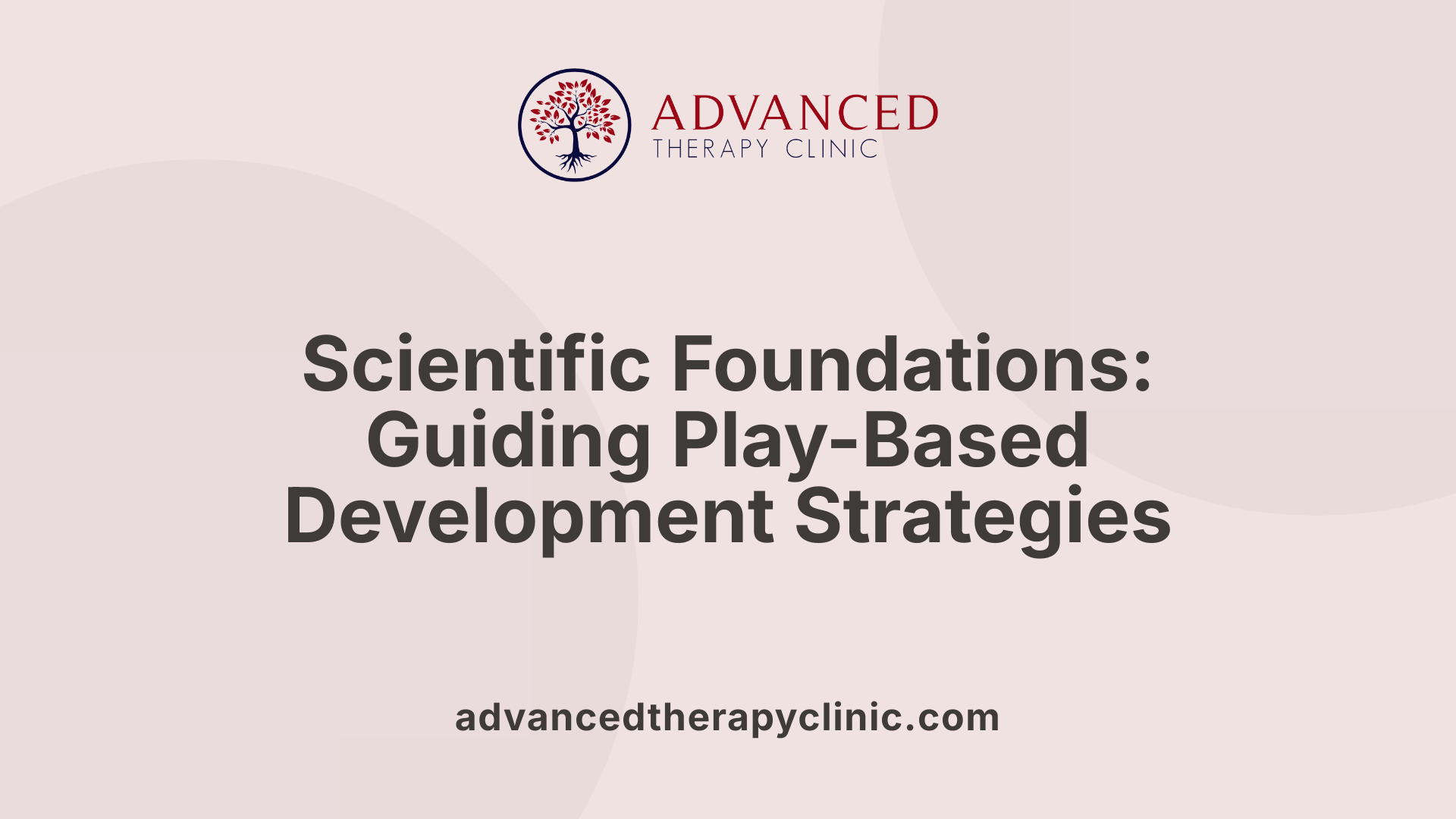
What professional and scientific foundations underpin occupational therapy practices aimed at improving play and leisure skills?
Occupational therapy (OT) is deeply rooted in scientific research and developmental theories that emphasize the vital role of play in overall health and growth. Theoretical models such as Jean Piaget’s cognitive development stages demonstrate how play contributes to intellectual and social development in children. For instance, through activities like stacking blocks or pretend play, children develop problem-solving skills, social understanding, and motor coordination.
Lev Vygotsky’s social learning theory complements this perspective by highlighting play’s role in learning through social interaction and scaffolding. His concept of the Zone of Proximal Development suggests that guided play can help children reach higher levels of skill acquisition by working with peers or adults.
Sensory integration theory adds another layer, especially for children with neurodiverse needs, supporting the idea that play enables children to explore textures, sounds, and movements at their own pace, improving sensory processing and responsiveness.
Furthermore, the Person-Environment-Occupation (PEO) model recognizes the dynamic interaction between the individual, their surroundings, and their daily activities. For play to be effective, environments—whether home, school, or therapy settings—must support and motivate children’s participation.
Together, these scientific foundations guide occupational therapists in designing interventions that harness play to foster developmental skills, emotional resilience, and social participation. They emphasize that play is not just leisure but a crucial human occupation essential throughout life that promotes growth, well-being, and inclusion.
Empowering Play for Lifelong Well-Being
Occupational therapy fundamentally recognizes play and leisure as essential human rights and integral to lifelong development. Through evidence-based practices rooted in scientific theories, therapists support children and individuals with developmental needs in engaging meaningfully in play activities that promote cognitive, social, emotional, and physical growth. These interventions are tailored to individual strengths and needs, ensuring that every person can experience the joys and benefits of play. As a result, OT not only enhances developmental outcomes but also improves quality of life for entire families, fostering independence, well-being, and inclusive participation across the lifespan.
References
- Promoting playfulness through a play-based occupational ...
- The Role of Play in Occupational Therapy: Building Skills ...
- How Occupational Therapy for Kids Benefits the Whole ...
- Play as Occupation: The State of Our Science and a Research ...
- Advantages of Occupational Therapy: A Path to Wellness
- How Play Facilitates the Benefits of Occupational Therapy
- Play-Based Occupational Therapy: Benefits & Materials
Recent articles

What to Expect at Your First Therapy Session
Discover what your child’s first therapy session looks like, from rapport building to goal setting, and how families can feel confident starting care.
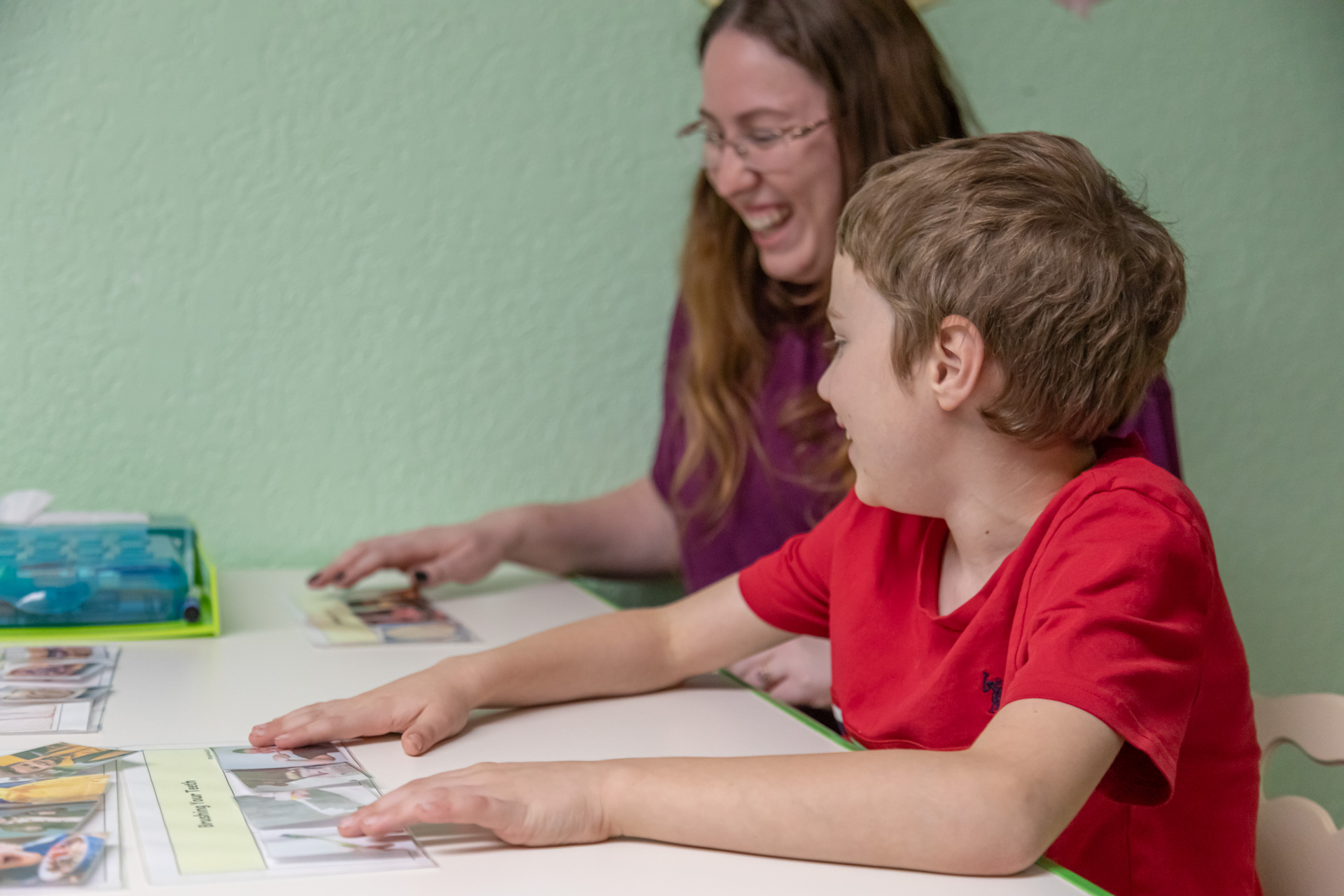
Celebrating Small Wins: How Therapy Helps Kids Build Confidence All Year Long
Learn why small wins in therapy matter, how they boost your child’s confidence, and simple ways families can celebrate progress all year long.

Empowering Missoula Children to Grow With Confidence and Connection
Learn how ABA therapy in Missoula helps children build communication, independence, and confidence through personalized, family‑centered support at Advanced Therapy Clinic.

Compassionate Pediatric Therapy in Butte, Montana
A welcoming place where every child’s potential is celebrated
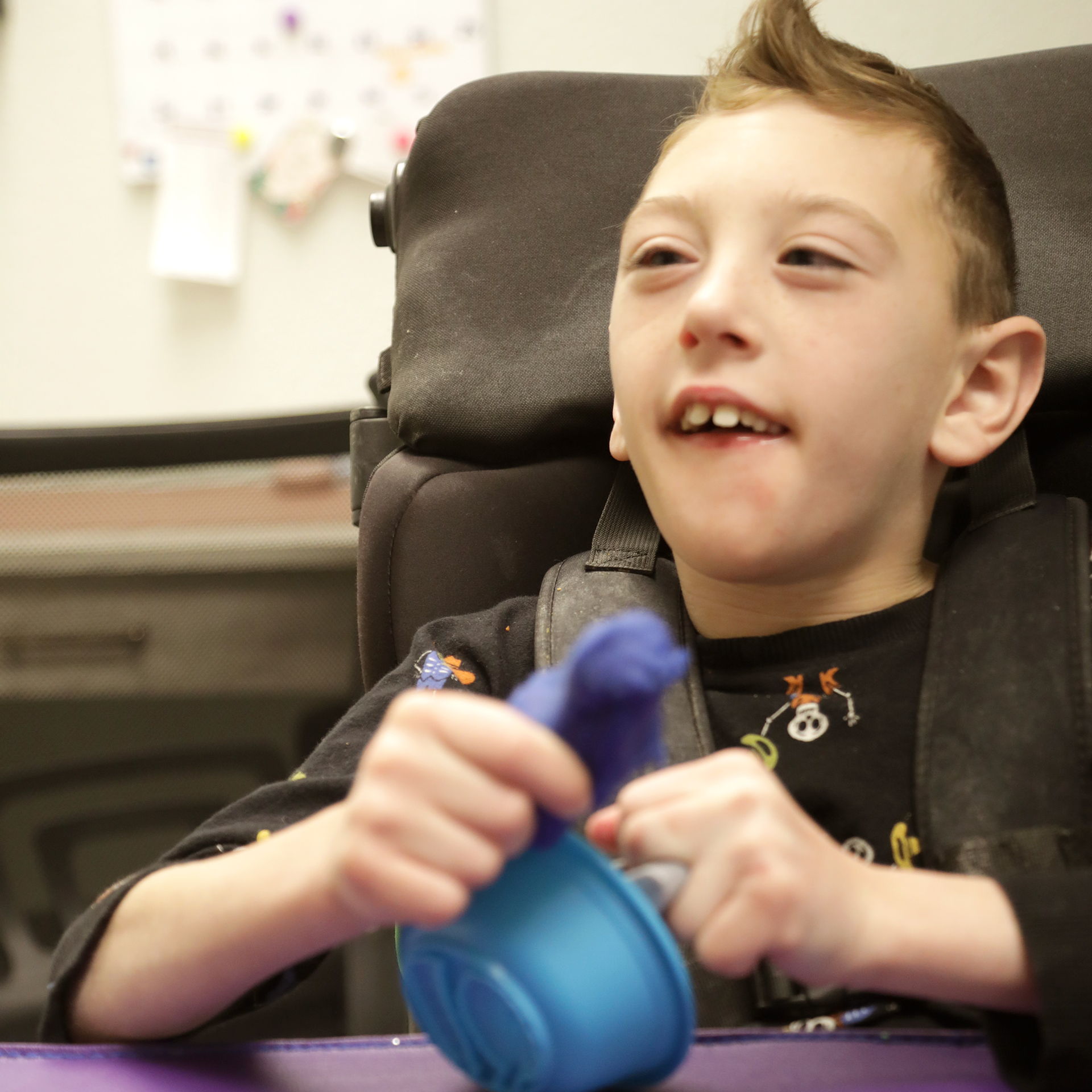
How Pediatric Therapy Helps Kids Thrive across Montana and Wyoming
A supportive guide for families exploring therapy options in Billings, Butte, Missoula or Sheridan.
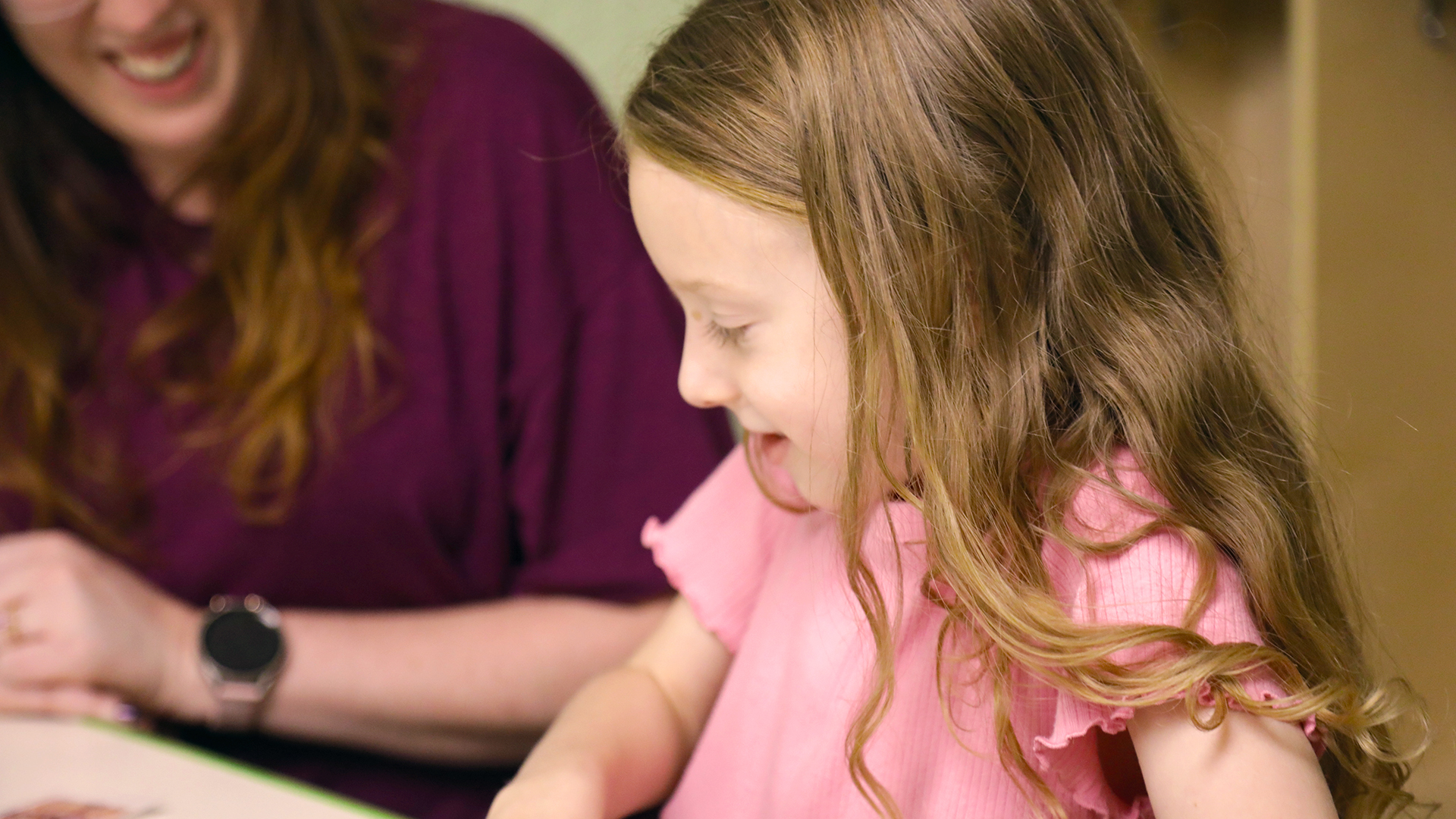
How to Choose the Right Pediatric Therapy Clinic in Billings, Montana
A Parent‑Friendly Guide To Finding The Best Support For Your Child

